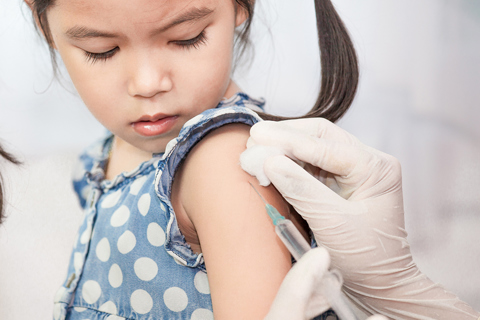What happens when parents cannot agree on child vaccination?

The topic of vaccinating children is a contentious issue. Whilst over 90% of the population in Australia over the age of 12 years are fully vaccinated, there appears to be some hesitancy in injecting those younger. The Family Court has been called in to make decisions regarding vaccinating children in the past – for vaccinations other than COVID. No doubt, the Court will also need to decide when parents are in dispute about whether to vaccinate their child (or not), for COVID.
On 10 January 2022, the Federal Government (adopted by State Governments) opened vaccinating children aged between 5 to 11 years for COVID-19. The vaccination will involve 2 doses of the Pfizer vaccine 8 weeks apart, with vaccines widely available across several vaccination centres and pharmacies.
This new phase of the vaccination program highlights, even more the diverse and divisive views on all things to do with the pandemic. In this blog, we explore what happens when parents do not agree about whether to vaccinate (or not) their child.
Where does it start with vaccinating children, or not?
The issue of vaccinating children ultimately comes down to a decision of parental responsibility.
Parental responsibility means all the decision-making for the major long-term issues for your children, including decisions relating to their health until the child turns 18. The starting point for each family is “shared parental responsibility” – meaning both parents must consent to a decision being made.
When there is no consent (agreement cannot be reached between the parents), the Family Court may be required to determine the issue.
Can my child decide to be vaccinated?
Whilst parents have parental responsibility for their child until they reach the age of 18, there is a vast difference between a dispute involving vaccinating a 5-year-old versus that of a 17-year-old.
For a child who is approaching teenage years or in teenage years (noting there is no fixed age to which the Court will consider views to be more paramount), the Court may apply what is known as “Gillick competency” for applications for medical procedures (often tested in matters of gender dysphoria).
For a child to be “Gillick competent”, he or she must have “sufficient understanding and intelligence to enable him or her to understand fully what is proposed”.
The views of a child who is likely to be “Gillick competent” for or against vaccination is likely to be put before the Court if the Court is required to determine such an issue.
You can read more about how the Court approaches the views of children in our blog, “Are the views of the child considered in family law?”
What has the Court decided in the past?
The Family Court has been asked to determine vaccination issues in the past (for non-COVID vaccines). The history of applications appears to be that one parent is seeking injunctive relief to prevent the other parent from vaccinating their child.
The Order often sought is sole parental responsibility for the issue of vaccinations or a specific order relating to following the Australian schedule of vaccinations for children or against a specific disease.
Objections to vaccines can be for several reasons. These can include:
- Beliefs – whether religious beliefs or otherwise, for the whole family or one parent.
- The argument for homeopathic therapies offering an alternative with the same beneficial outcome.
- Concern a particular child (due to unique health history) will have an adverse reaction.
They are unique to each family (and child).
The starting point for the Family Court for any parenting dispute is the “best interests of the child” being the paramount consideration. The Court may order for the appointment of an Independent Children’s Lawyer to assist in representing the child subject to the application.
There is no fixed position of the Family Court as to whether to vaccinate or not vaccinate however, history of the case law suggests that on most occasions, the Court will order for the child to be vaccinated.
When the Court has not made an order for vaccination, it has been for lack of evidence (no expert evidence) and failure of the person supporting vaccination to present their case adequately.
What happens if parents cannot agree?
Alternative Dispute Resolution is still the best way to resolve disputes, particularly about a topic so emotive. If you cannot agree between the two of you, engage a mediator to assist in having a productive conversation.
The Court will require parties to take all genuine steps to resolve the matter prior to filing an application.
The issue of vaccination is hotly debated however, decisions relating particularly to the COVID vaccine are not widely available (if at all) at this point. It is a new era of decision-making for Family Law judicial officers.
Get help from a family lawyer
At Meillon & Bright, we have experience in negotiating all aspects of parenting disputes, including vaccinating children.
Contacting Meillon & Bright
Family Lawyers Perth & Sydney
The information contained in this article is of general nature and should not be construed as legal advice. If you require further information, advice or assistance for your specific circumstances, please contact Meillon & Bright Family Lawyers.

